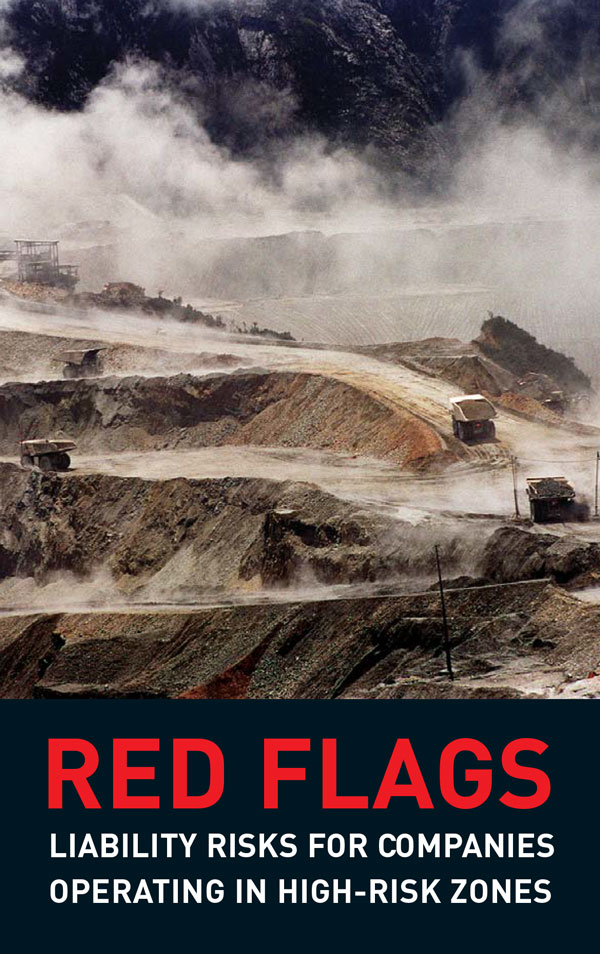Red Flags is an attempt to communicate, in simple, clear terms, the changing nature of liability risk, based on the latest research into recent case law. It provides a guide for law-abiding companies as to how the expectations for compliance are changing.
A Red Flag is a warning of heightened risk. The Red Flags pamphlet and web site provide basic information about the potential for litigation, based on actual legal actions involving businesses or business people and international crimes. Drawing on publicly available information concerning past or present case law, these Red Flags are intended as warnings of liability risk.
“The Red Flags are an indispensable tool alerting companies to risks that may contribute to serious human rights abuses–enabling them to change their plans before harm occurs.”
Professor John Ruggie, UN SRSG for Business and Human Rights
The Red Flags pamphlet and web site seek to help companies avoid participation in the worst forms of human rights abuse and more broadly to strengthen the global trend towards accountability for such participation. The pamphlet and web site can be used by company compliance officers, legal counsel, risk analysts and others as part of their due diligence activities to avoid company participation in such crimes, or by communities affected by company activities seeking to better understand what their rights may be. Both the pamphlet and the web site can be used by governments in providing advice to companies operating high-risk zones, such as war zones and repressive regimes, and by practitioners seeking a starting point into state practice on these issues. It may also be useful for researchers looking for information on developments in domestic and international laws.
The Red Flags are the result of a collaborative effort by an informal group of lawyers, researchers and diplomats from several countries, including Don Hubert, Mora Johnson, Gerald Pachoud, Anita Ramasastry, Mark Taylor, Robert Thompson, and Salil Tripathi. Research was conducted by Mark Taylor, with help from Mora Johnson and Salil Tripathi. A legal review was conducted by Professor Anita Ramasastry. The Government of Canada and the Ford Foundation provided financial support for research, legal review and publication of the Red Flags. The Red Flags guide draws on wider research on business liability questions conducted by the Fafo Institute for International Studies, Oslo, under the title Business and International Crimes led by Mark Taylor, and Karen Ballentine, Professor Anita Ramasastry and Robert Thompson and a network of practicing lawyers in 16 countries. The project received financial support over several years from the Governments of Canada, Switzerland, Norway and The Ford Foundation. Publication of the Red Flags guide was a joint effort by
